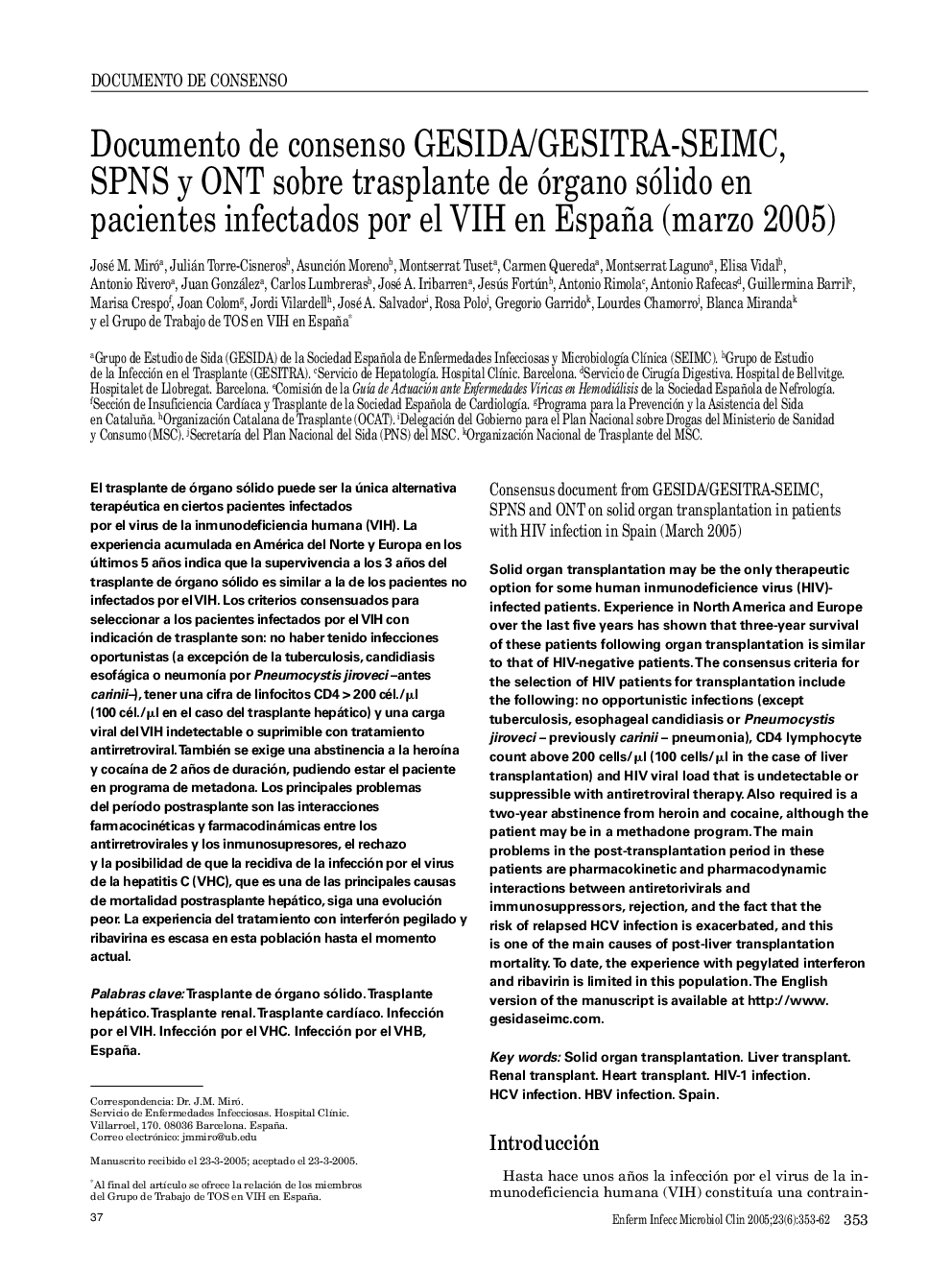| Article ID | Journal | Published Year | Pages | File Type |
|---|---|---|---|---|
| 9277158 | Enfermedades Infecciosas y Microbiología Clínica | 2005 | 10 Pages |
Abstract
Solid organ transplantation may be the only therapeutic option for some human inmunodeficience virus (HIV)- infected patients. Experience in North America and Europe over the last five years has shown that three-year survival of these patients following organ transplantation is similar to that of HIV-negative patients. The consensus criteria for the selection of HIV patients for transplantation include the following: no opportunistic infections (except tuberculosis, esophageal candidiasis or Pneumocystis jiroveci - previously carinii - pneumonia), CD4 lymphocyte count above 200 cells μl (100 cells μl in the case of liver transplantation) and HIV viral load that is undetectable or suppressible with antiretroviral therapy. Also required is a two-year abstinence from heroin and cocaine, although the patient may be in a methadone program. The main problems in the post-transplantation period in these patients are pharmacokinetic and pharmacodynamic interactions between antiretorivirals and immunosuppressors, rejection, and the fact that the risk of relapsed HCV infection is exacerbated, and this is one of the main causes of post-liver transplantation mortality. To date, the experience with pegylated interferon and ribavirin is limited in this population. The English version of the manuscript is available at http://www. gesidaseimc.com.
Keywords
Related Topics
Life Sciences
Immunology and Microbiology
Microbiology
Authors
José M. Miró, Julián Torre-Cisneros, Asunción Moreno, Montserrat Tuset, Carmen Quereda, Montserrat Laguno, Elisa Vidal, Antonio Riveroa, Juan González, Carlos Lumbreras, José A. Iribarrena, Jesús Fortún, Antonio Rimola, Antonio Rafecas,
